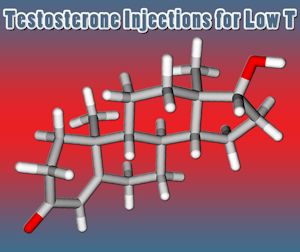Introduction to Omnitrope and Its Relevance
Omnitrope is a biosimilar recombinant human growth hormone (somatropin) that has been approved by the FDA for the treatment of growth hormone deficiency (GHD) in both children and adults. Its significance in the medical field extends to its potential use in patients with sickle cell disease (SCD), a condition that can lead to growth hormone deficiency due to the chronic nature of the illness and its impact on the body's endocrine system.
Understanding Sickle Cell Disease and Growth Hormone Deficiency
Sickle cell disease is a group of inherited red blood cell disorders that affect hemoglobin, the molecule in red blood cells that delivers oxygen to cells throughout the body. The disease can cause a range of complications, including chronic anemia, pain, and organ damage. Among these, growth hormone deficiency can occur as a result of the disease's impact on the pituitary gland, which is responsible for producing growth hormone.
The Mechanism of Action of Omnitrope
Omnitrope works by mimicking the action of the body's natural growth hormone. It stimulates growth, cell reproduction, and regeneration in humans. In patients with SCD and GHD, Omnitrope can help to improve growth rates, increase muscle mass, and enhance overall physical development, which is often stunted in these individuals.
Clinical Evidence Supporting Omnitrope Use in SCD
Several studies have explored the efficacy of growth hormone replacement therapy in patients with SCD. While research specifically on Omnitrope in this population is limited, the existing data on somatropin suggest that it can lead to improved growth outcomes in children with SCD and GHD. These studies have shown that growth hormone therapy can result in increased height velocity and final adult height in affected individuals.
Safety Profile and Considerations
The safety of Omnitrope has been well-established in the general population with growth hormone deficiency. However, in patients with SCD, additional considerations must be taken into account. These include monitoring for potential complications such as glucose intolerance, which can be exacerbated in SCD due to the disease's effect on the pancreas. Regular monitoring of blood glucose levels and other metabolic parameters is essential when using Omnitrope in this population.
Administration and Dosage
Omnitrope is typically administered via subcutaneous injection, with the dosage tailored to the individual's needs based on their weight, growth rate, and response to therapy. In the context of SCD, the treatment regimen may need to be adjusted to accommodate the patient's overall health status and any concurrent treatments they may be receiving.
The Impact on Quality of Life
For American males with SCD and GHD, the use of Omnitrope can have a profound impact on their quality of life. By addressing the physical manifestations of growth hormone deficiency, such as short stature and reduced muscle mass, Omnitrope can help these individuals achieve a more normal growth pattern and improve their self-esteem and social functioning.
Future Directions and Research Needs
While the use of Omnitrope in SCD and GHD shows promise, further research is needed to fully understand its long-term effects and optimal use in this specific population. Future studies should focus on larger cohorts and longer follow-up periods to provide more comprehensive data on the benefits and risks of Omnitrope in patients with SCD.
Conclusion
Omnitrope represents a valuable therapeutic option for American males with sickle cell disease who also suffer from growth hormone deficiency. Its ability to promote growth and improve physical development can significantly enhance the lives of those affected. As research continues to evolve, the medical community remains committed to optimizing the use of Omnitrope to ensure the best possible outcomes for patients with SCD and GHD.
Contact Us Today For A Free Consultation

- Omnitrope: Uses, Contraindications, and Precautions for American Males [Last Updated On: February 22nd, 2025] [Originally Added On: February 22nd, 2025]
- Unveiling the Cardiovascular Benefits of Omnitrope in Growth Hormone Deficient American Males [Last Updated On: February 28th, 2025] [Originally Added On: February 28th, 2025]
- Unveiling the Impact of Omnitrope on Cognitive Development in Pediatric Patients [Last Updated On: March 6th, 2025] [Originally Added On: March 6th, 2025]
- Unveiling the Medical Odyssey of Omnitrope: From Synthesis to Treatment [Last Updated On: March 15th, 2025] [Originally Added On: March 15th, 2025]
- Unveiling the Potential of Omnitrope in Treating Pediatric Growth Disorders [Last Updated On: March 16th, 2025] [Originally Added On: March 16th, 2025]
- Unlocking Growth Potential: The Role of Omnitrope in Managing Inflammatory Bowel Disease in Children [Last Updated On: March 16th, 2025] [Originally Added On: March 16th, 2025]
- Unveiling the Therapeutic Potential of Omnitrope in Managing Noonan Syndrome [Last Updated On: March 16th, 2025] [Originally Added On: March 16th, 2025]
- Unveiling the Dermatological Benefits of Omnitrope in Growth Hormone Deficient American Males [Last Updated On: March 16th, 2025] [Originally Added On: March 16th, 2025]
- Unveiling the Therapeutic Potential of Omnitrope in Managing Growth Hormone Deficiency Among American Males with Epilepsy [Last Updated On: March 16th, 2025] [Originally Added On: March 16th, 2025]
- Omnitrope Enhances Growth in American Males with Noonan Syndrome: Clinical Insights [Last Updated On: March 16th, 2025] [Originally Added On: March 16th, 2025]
- Omnitrope: Enhancing Growth in SGA American Male Infants - Efficacy and Safety [Last Updated On: March 18th, 2025] [Originally Added On: March 18th, 2025]
- Omnitrope's Impact on Insulin Sensitivity in American Males with Growth Hormone Deficiency [Last Updated On: March 18th, 2025] [Originally Added On: March 18th, 2025]
- Omnitrope Therapy's Impact on Bone Age in American Male Children: Efficacy and Considerations [Last Updated On: March 19th, 2025] [Originally Added On: March 19th, 2025]
- Omnitrope Therapy: Enhancing Muscle Strength in American Adult Males [Last Updated On: March 20th, 2025] [Originally Added On: March 20th, 2025]
- Omnitrope: Enhancing Growth in Pediatric Endocrinology with FDA-Approved Biosimilar [Last Updated On: March 20th, 2025] [Originally Added On: March 20th, 2025]
- Omnitrope's Impact on Lipid Profiles in American Males with Growth Hormone Deficiency [Last Updated On: March 21st, 2025] [Originally Added On: March 21st, 2025]
- Omnitrope: Enhancing Growth and Final Height in American Boys with GHD [Last Updated On: March 21st, 2025] [Originally Added On: March 21st, 2025]
- Omnitrope: Enhancing Growth in American Boys with Genetic Disorders [Last Updated On: March 21st, 2025] [Originally Added On: March 21st, 2025]
- Omnitrope: Enhancing Growth and Life Quality in Males with Idiopathic Short Stature [Last Updated On: March 21st, 2025] [Originally Added On: March 21st, 2025]
- Omnitrope Therapy Enhances Sleep Quality in American Males with Growth Hormone Deficiency [Last Updated On: March 21st, 2025] [Originally Added On: March 21st, 2025]
- Omnitrope for Growth Hormone Deficiency in American Adolescent Males: Uses and Considerations [Last Updated On: March 21st, 2025] [Originally Added On: March 21st, 2025]
- Omnitrope's Impact on Psychological Well-being in American Men with GHD [Last Updated On: March 22nd, 2025] [Originally Added On: March 22nd, 2025]
- Omnitrope Enhances Life Quality in American Males with Short Bowel Syndrome [Last Updated On: March 22nd, 2025] [Originally Added On: March 22nd, 2025]
- Omnitrope: Treating Growth Hormone Deficiency in American Males with Hypopituitarism [Last Updated On: March 22nd, 2025] [Originally Added On: March 22nd, 2025]
- Omnitrope: Enhancing Life Quality in Male Cancer Survivors with Growth Hormone Deficiency [Last Updated On: March 22nd, 2025] [Originally Added On: March 22nd, 2025]
- Omnitrope Therapy Enhances Growth in Children with Cystic Fibrosis: A Comprehensive Overview [Last Updated On: March 23rd, 2025] [Originally Added On: March 23rd, 2025]
- Omnitrope: Treating Growth Hormone Deficiency in Autoimmune Diseases for American Males [Last Updated On: March 23rd, 2025] [Originally Added On: March 23rd, 2025]
- Omnitrope's Role in Regenerative Medicine for American Males: Growth and Healing Potential [Last Updated On: March 23rd, 2025] [Originally Added On: March 23rd, 2025]
- Omnitrope Therapy: Effects on Renal Function in Pediatric Patients [Last Updated On: March 23rd, 2025] [Originally Added On: March 23rd, 2025]
- Omnitrope: Treating Growth Hormone Deficiency in American Males with Epilepsy [Last Updated On: March 23rd, 2025] [Originally Added On: March 23rd, 2025]
- Omnitrope: Enhancing Life for HIV-Positive American Males with Growth Hormone Deficiency [Last Updated On: March 23rd, 2025] [Originally Added On: March 23rd, 2025]
- Omnitrope: Treating Growth Hormone Deficiency in Obese American Males [Last Updated On: March 23rd, 2025] [Originally Added On: March 23rd, 2025]
- Omnitrope: Advancing GHD Treatment in Diabetic American Males [Last Updated On: March 23rd, 2025] [Originally Added On: March 23rd, 2025]
- Omnitrope's Efficacy in Treating Growth Issues in Pediatric IBD Patients [Last Updated On: March 24th, 2025] [Originally Added On: March 24th, 2025]
- Omnitrope: A Promising Treatment for Growth Hormone Deficiency in American Men [Last Updated On: March 24th, 2025] [Originally Added On: March 24th, 2025]
- Omnitrope: Treating Growth Hormone Deficiency in American Males with Rheumatoid Arthritis [Last Updated On: March 24th, 2025] [Originally Added On: March 24th, 2025]
- Omnitrope Enhances Immune Function in American Males with Growth Hormone Deficiency [Last Updated On: March 24th, 2025] [Originally Added On: March 24th, 2025]
- Omnitrope Therapy Enhances Skin Health in Pediatric American Males [Last Updated On: March 25th, 2025] [Originally Added On: March 25th, 2025]
- Omnitrope: Treating Growth Failure in Children with Chronic Illnesses [Last Updated On: March 25th, 2025] [Originally Added On: March 25th, 2025]
- Omnitrope: Advancing Treatment for GHD in American Males with Hemophilia [Last Updated On: March 25th, 2025] [Originally Added On: March 25th, 2025]
- Omnitrope's Impact on Hematological Parameters in American Males with GHD [Last Updated On: March 25th, 2025] [Originally Added On: March 25th, 2025]
- Omnitrope: A Promising Treatment for Osteoporosis in Men with Growth Hormone Deficiency [Last Updated On: March 26th, 2025] [Originally Added On: March 26th, 2025]
- Omnitrope's Efficacy in Enhancing Growth in IUGR-Affected American Male Children [Last Updated On: March 26th, 2025] [Originally Added On: March 26th, 2025]
- Omnitrope Therapy's Impact on Gastrointestinal Health in American Male Children [Last Updated On: March 26th, 2025] [Originally Added On: March 26th, 2025]
- Omnitrope: Treating Growth Hormone Deficiency in Males with PCOS [Last Updated On: March 26th, 2025] [Originally Added On: March 26th, 2025]
- Omnitrope: Treating Growth Hormone Deficiency and Chronic Fatigue in American Males [Last Updated On: March 26th, 2025] [Originally Added On: March 26th, 2025]
- Omnitrope's Impact on Neurological Function in American Males with GHD [Last Updated On: March 26th, 2025] [Originally Added On: March 26th, 2025]
- Omnitrope's Impact on Liver Function in American Men with Growth Hormone Deficiency [Last Updated On: March 26th, 2025] [Originally Added On: March 26th, 2025]
- Omnitrope: Enhancing Growth and Quality of Life in Males with Down Syndrome [Last Updated On: March 27th, 2025] [Originally Added On: March 27th, 2025]
- Omnitrope: Managing GHD in American Males with Asthma [Last Updated On: March 27th, 2025] [Originally Added On: March 27th, 2025]
- Omnitrope's Impact on Growth and Development in Children with Autism Spectrum Disorders [Last Updated On: March 27th, 2025] [Originally Added On: March 27th, 2025]
- Omnitrope: Enhancing Growth and Metabolic Health in GHD and Thyroid Disorders [Last Updated On: March 27th, 2025] [Originally Added On: March 27th, 2025]
- Omnitrope Enhances Respiratory Function in American Men with Growth Hormone Deficiency [Last Updated On: March 27th, 2025] [Originally Added On: March 27th, 2025]
- Omnitrope Therapy's Impact on Dental Health in Children: A Comprehensive Overview [Last Updated On: March 28th, 2025] [Originally Added On: March 28th, 2025]
- Omnitrope: Enhancing Reproductive Health in Men with Growth Hormone Deficiency [Last Updated On: March 28th, 2025] [Originally Added On: March 28th, 2025]
- Omnitrope: Enhancing Growth in Children with Congenital Heart Disease [Last Updated On: March 28th, 2025] [Originally Added On: March 28th, 2025]
- Omnitrope's Impact on Growth Hormone Deficiency in American Males with MS [Last Updated On: March 28th, 2025] [Originally Added On: March 28th, 2025]
- Omnitrope Therapy Enhances Eye Health in Growth Hormone Deficient Children [Last Updated On: March 28th, 2025] [Originally Added On: March 28th, 2025]
- Omnitrope Therapy's Impact on Auditory Health in Pediatric Patients: Insights for American Males [Last Updated On: March 30th, 2025] [Originally Added On: March 30th, 2025]
- Omnitrope: Enhancing Life for American Males with Growth Hormone Deficiency [Last Updated On: April 3rd, 2025] [Originally Added On: April 3rd, 2025]
- Omnitrope: Enhancing Life for American Males with GHD and Chronic Pain [Last Updated On: April 4th, 2025] [Originally Added On: April 4th, 2025]
- Omnitrope: Enhancing Life Quality in American Males with GHD and Fibromyalgia [Last Updated On: April 4th, 2025] [Originally Added On: April 4th, 2025]
- Omnitrope Therapy: Enhancing Growth and Musculoskeletal Health in American Boys [Last Updated On: April 5th, 2025] [Originally Added On: April 5th, 2025]
- Omnitrope Enhances Skin Health in American Men with Growth Hormone Deficiency [Last Updated On: April 6th, 2025] [Originally Added On: April 6th, 2025]
- Omnitrope's Impact on GHD and Psoriasis in American Males: Efficacy and Considerations [Last Updated On: April 6th, 2025] [Originally Added On: April 6th, 2025]
- Omnitrope's Role in Managing GHD in American Males with Eczema: Efficacy and Safety [Last Updated On: April 7th, 2025] [Originally Added On: April 7th, 2025]
- Omnitrope's Efficacy in Treating Growth Delays from Allergic Rhinitis in American Boys [Last Updated On: April 9th, 2025] [Originally Added On: April 9th, 2025]
- Omnitrope Therapy: Effects on Growth and Urological Health in Children [Last Updated On: April 10th, 2025] [Originally Added On: April 10th, 2025]
- Omnitrope's Psychiatric Impacts on American Males with Growth Hormone Deficiency [Last Updated On: April 10th, 2025] [Originally Added On: April 10th, 2025]
- Omnitrope Therapy: Enhancing Nutritional Health in American Male Children with GHD [Last Updated On: April 10th, 2025] [Originally Added On: April 10th, 2025]
- Omnitrope's Role in Treating GHD in American Males with Schizophrenia: Efficacy and Care [Last Updated On: April 11th, 2025] [Originally Added On: April 11th, 2025]
- Omnitrope's Impact on Geriatric Health in American Males: Enhancing Life Quality [Last Updated On: April 11th, 2025] [Originally Added On: April 11th, 2025]
- Omnitrope Therapy Enhances Bone Health in Aging American Males: A Comprehensive Overview [Last Updated On: April 12th, 2025] [Originally Added On: April 12th, 2025]
- Omnitrope's Role in Treating Growth Hormone Deficiency in American Males with Anorexia [Last Updated On: April 12th, 2025] [Originally Added On: April 12th, 2025]
- Omnitrope's Role in Treating GHD in American Males with Alzheimer's [Last Updated On: April 15th, 2025] [Originally Added On: April 15th, 2025]
- Omnitrope Enhances Recovery in American Males with Post-Surgical Growth Hormone Deficiency [Last Updated On: April 17th, 2025] [Originally Added On: April 17th, 2025]
- Omnitrope: A Promising Therapy for Growth Hormone Deficiency in Parkinson's Disease [Last Updated On: April 17th, 2025] [Originally Added On: April 17th, 2025]
- Omnitrope: Enhancing Life for American Males with TBI-Induced GHD [Last Updated On: April 18th, 2025] [Originally Added On: April 18th, 2025]
- Omnitrope Therapy: Enhancing Surgical Recovery in American Male Children [Last Updated On: April 18th, 2025] [Originally Added On: April 18th, 2025]
- Omnitrope's Efficacy in Enhancing Growth and Quality of Life in Children with CP [Last Updated On: April 19th, 2025] [Originally Added On: April 19th, 2025]
Word Count: 600



















